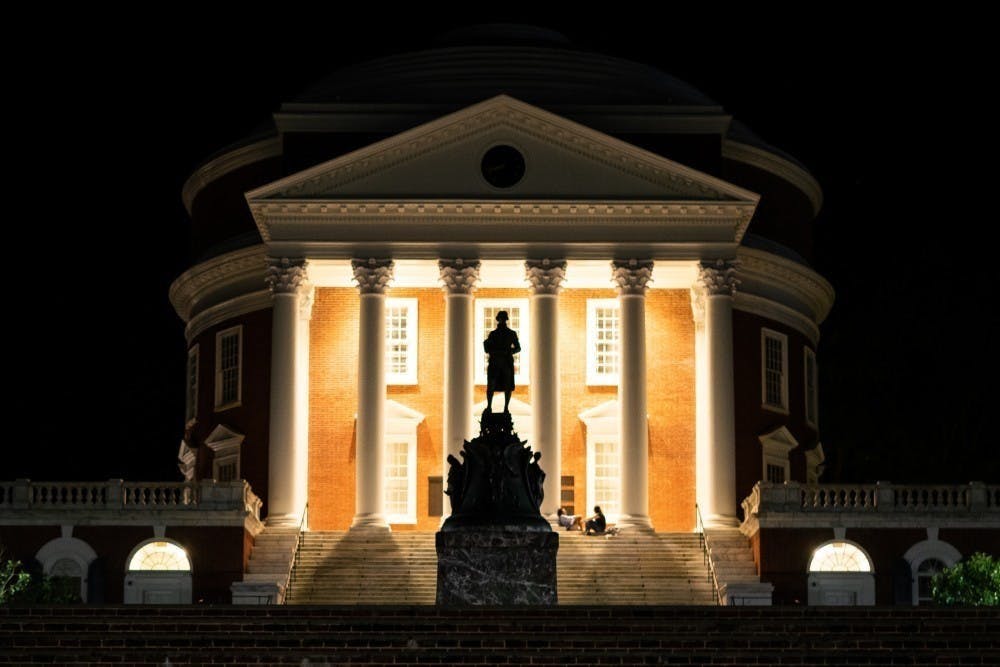The University has announced the creation of two new committees, one focused on free speech and expression and the other examining the names of University institutions and the contextualization and status of memorials on Grounds.
The Committee on Free Expression and Free Inquiry will write a statement identifying the roles of free expression and free inquiry in the University's academic enterprise as well as how they shape engagement with the ideas of others. This committee will be chaired by Leslie Kendrick, White Burkett Miller professor of law and public affairs and vice dean at the School of Law.
“We are working to give voice to our commitment as an educational institution to the free and open exchange of ideas, and to grapple with the complexities of our University’s history and the names that we honor,” University President Jim Ryan said. “These committees will help us forge a path forward as we continue to address these issues as a community and as a nation.”
Additional members of this committee include Dean of Students Allen Groves; Kevin McDonald, vice president for diversity, equity and inclusion; Mazzen Shalaby, fourth-year Batten student and Board of Visitors student member; Susan Kirk, professor, associate dean for graduate medical education and chair-elect of the Faculty Senate as well as various other alumni, faculty and administrators. University Counsel Tim Heaphy will also serve as counsel to the committee.
Ryan addressed the issue of free speech in a statement this fall following controversy over signs posted on Lawn room doors critiquing the University. The signs, which contained profanity such as “F—CK UVA,” generated calls for removal from some alumni and community members. In his statement, Ryan said that after consultation with Heaphy, the University could not remove the signs but would consider placing a ban on all signage on Lawn room doors as early as next year.
The Foundation for Individual Rights in Education — a watchdog group for free speech and other related issues at college and universities — previously awarded the University a “green light” speech code rating, the highest given by the organization. The green light rating indicates there is no University policy that is a serious threat to students’ free speech rights on Grounds.
Free speech also played a major role in the events of Aug. 11 and 12, 2017, when neo-Nazis and white supremacists held a violent Unite the Right rally in Charlottesville.
The University also announced the creation of a Naming and Memorials Committee, which will serve as a reconfiguration of the University’s Committee on Names. The new committee will establish protocols for naming — and in some cases, renaming — buildings on Grounds as well as making recommendations on contextualizing memorials. Recommendations will be sent to Ryan for review and then to the Board of Visitors.
The Naming and Memorials Committee will be chaired by Michael Suarez, English professor and executive director of the Rare Book School.
“Our University, as a public institution of higher education, is not a place stuck in time but a dynamic community where history is alive and ever-changing,” Suarez said. “We have a responsibility not only to record that history, but also to interpret it for current and future generations, to give it context and meaning.
Additional members of the Naming and Memorials Committee will include Shalaby, History and African American Studies Prof. Kevin Gaines and various other faculty, alumni and administrators. The committee will also refer to numerous consultants from both the University and Charlottesville communities.
Following the release of the racial equity task force’s final report, which suggested 12 initiatives to promote racial equity at the University, the Board of Visitors voted to adopt five recommendations — recontextualization of the Thomas Jefferson statue, removal and relocation of the George Rogers Clark statue, rededication or removal of the Frank Hume Memorial Wall, renaming the School of Education and Human Development and removing Henry Withers’ name from the name of Withers-Brown Hall.
In anticipation of the Board of Visitors’ decision, the Minority Rights Coalition is calling on the University to immediately remove the wall and not rededicate it.
Last summer, the Board of Visitors voted to rename Ruffner Hall to Ridley Hall after Walter Ridley, the first African American to earn a doctoral degree from the University. Community members, activists and students have also called into question the name of Alderman Library, which is named after Edwin Alderman, first president of the University and known white supremacist and eugenicist.
Following the renaming of Ruffner Hall, a petition was also circulated over the summer calling on the University to remove names that should no longer be honored on Grounds — many buildings are named after known white supremacists.







